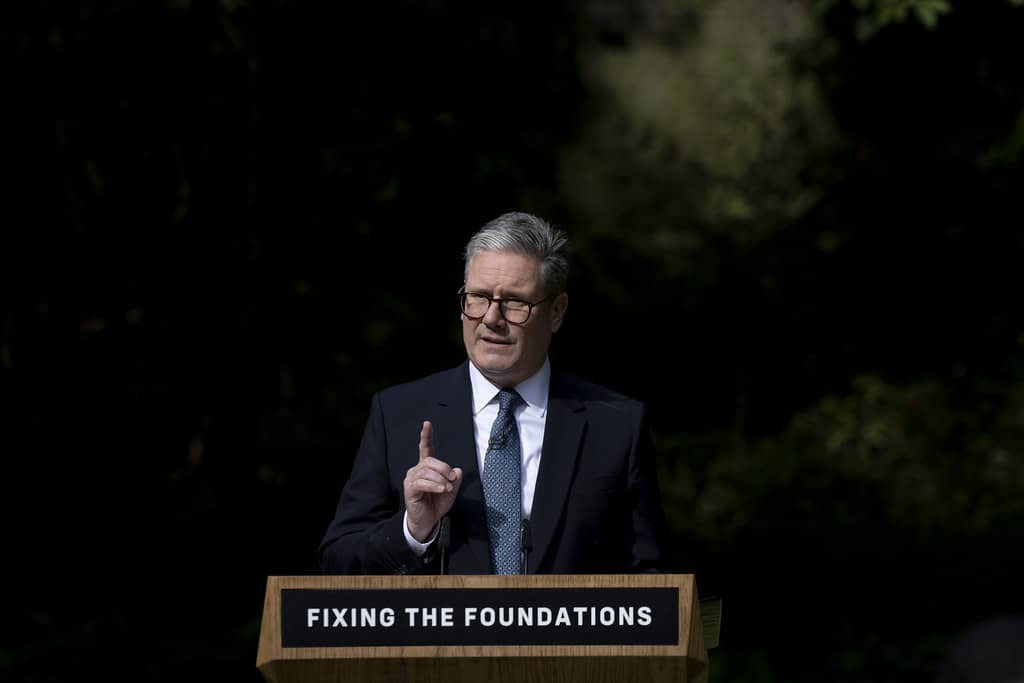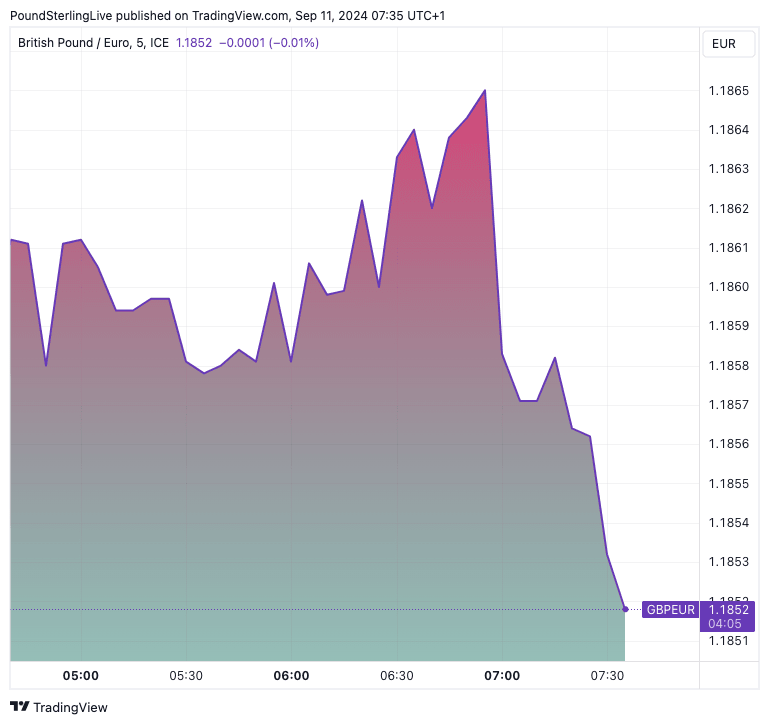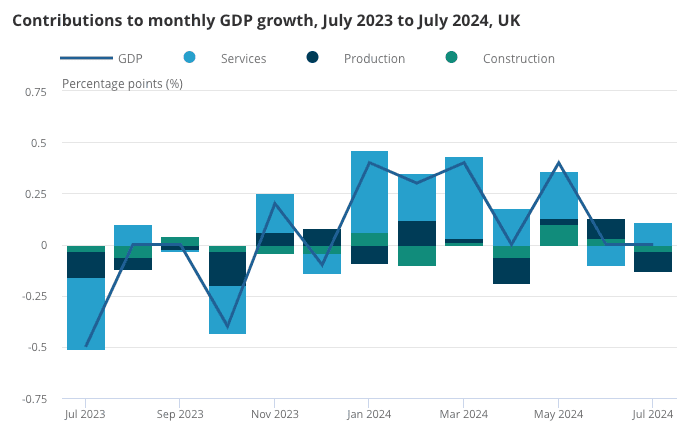Another Month of Zero Growth for the UK
- Written by: Gary Howes

Above: London, United Kingdom. Prime Minister Keir Starmer's speech from Aug. 28. Economists say the government's downbeat tone risks chilling business sentiment. Picture by Simon Dawson / No 10 Downing Street.
Pound Sterling showed its disappointment to news the economy failed to grow in July, whereas the investment community thought it would register a 0.2% expansion.
This means the economy has not grown for two months in a row and will raise questions about the UK's growth outperformance relative to the Eurozone.
The Pound to Euro exchange rate (GBP/EUR) was at 1.1865 in the minutes leading up to the release but fell to 1.1858 in the minutes after.
Compare Currency Exchange Rates
Find out how much you could save on your international transfer
Estimated saving compared to high street banks:
£2,500.00
Free • No obligation • Takes 2 minutes
The market reaction suggests yesterday's budding recovery in GBP/EUR might be at risk of stalling and reversing, particularly if Thursday's European Central Bank decision turns out to be hawkish.
The ONS says although the UK's dominant services sector expanded 0.1% in July, production output slumped 0.8%, evidence that the sector is sensitive to a global manufacturing recession that is underway and is most acutely evident in Germany. Construction also weighed (-0.4%).
"The UK economy was expected to continue to show modest momentum, but signs suggest that the growth from the first half of the year is now stuttering," says Lindsay James, investment strategist at Quilter Investors.
🎯 GBP/EUR year-ahead forecast: Consensus targets from our survey of over 30 investment bank projections. 📩 Request your copy.
James says the disappointing data could also be evidence of an economy that has turned cautious in the face of dire warnings about the state of the economy and the need to jack up taxes by the new Labour government.
"The government needs to be careful not to overcorrect with its narrative around tax rises and the potential this has to put off investment," he says.
The Labour government inhereted a growing economy and business and consumer sentiment was boosted in the wake of the elections on the hope of a fresh injection of impetus from fresh hands, but subsequent policy decisions and communications have weighed on sentiment and risk snuffing out UK economic growth.
Above: GBP/EUR fell in the minutes following the release.
Media reports show Keir Starmer's Downing Street are airing plans to raise taxes on investors and this will impact business investment, which is a key engine of economic growth.
For the British Pound outlook, what matters is how these data impact decisions at the Bank of England. A rate cut in September is all but unlikely owing to another strong set of labour market data out Tuesday and expectations that inflation will rise again into the end of the year.
This can support the Pound. But any sense that the Bank might overlook inflation and accelerate rate cuts to boost the economy can potentially weigh on the Pound. The communication at next Thursday's decision will therefore be important in this regard.
The Pound is 2024's best-performing currency because investors think the Bank will cut rates at a slower rate than the U.S. Federal Reserve and European Central Bank. Should this expectation be challenged, then that outperformance could give way to underperformance.
"The economy stagnated in July, but that doesn’t mean the UK is on the cusp of another recession and we still think the stickiness of inflation will keep the Bank on hold in September," says Ruth Gregory, Deputy Chief UK Economist at Capital Economics.
Although the UK economy showed no growth in June and July, the running three-month-on-three-month rate of growth stood at 0.5%, which is an above-trend rate of growth.
Gregory thinks a mild slowdown in GDP growth to more normal rates of 0.3% q/q later this year is more likely than a sudden drop back into recession.
The Pound-Euro exchange rate will now turn its focus to Thursday's ECB decision.






